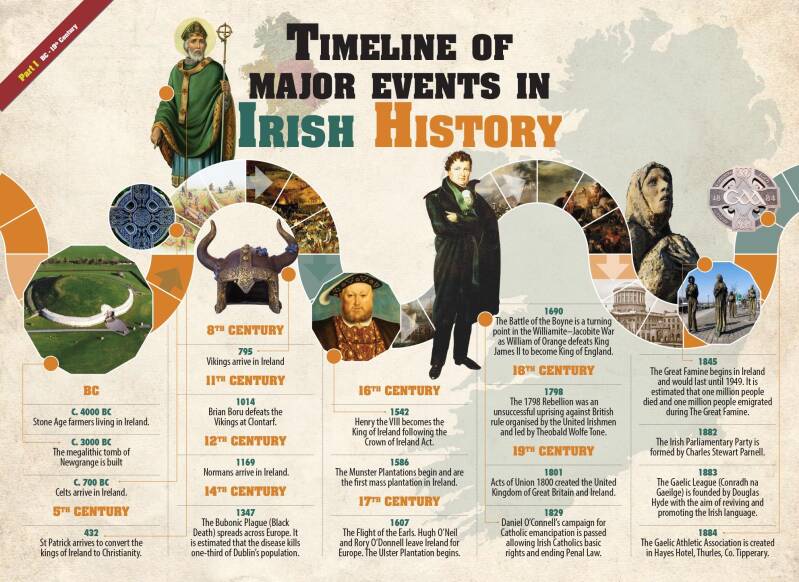Welcome to Ireland
Ireland, referred to as the Emerald Isle due to its verdant landscapes, is a country of culture, history, and opportunities. Ireland is one of the preferred destinations for people who want to live and work abroad, and is situated in Northwestern Europe. This online information center will discuss a lot of life in Ireland topics, job search tools, visa requirements, language learning resources, as well as Ireland-specific information.
Geography and More
Geographically, Ireland is divided into four provinces: Leinster, Munster, Connacht, and Ulster. Some of its largest cities are Dublin (the capital), Cork, Galway, and Limerick. The population of Ireland is about 4.9 million people, having the official languages as English and Irish. The development of intercultural competence in Ireland is based on the fact that the country is a multilingual one, and one should interact with both English and Irish-speaking communities.

Colonial and Decolonial History
Ireland’s colonial past characterized by the subjugation by the British and the struggle for independence has formed its national identity. The main players in the process that led to the independence of Ireland, and the creation of the Irish Free State in 1922, were the leaders like Michael Collins and Éamon de Valera (Dept of Foreign Affairs, 2021). Nowadays, Ireland is in a process of decolonization, in the sense of re-establishment of the Irish language and culture, heritage restitution, and inclusivity and diversity. Thus, Ireland represents a special set of opportunities and challenges for those who would like to live and work abroad. With intercultural competence, knowledge of the main events of the annual calendar, and awareness of its colonial and de-colonial history, people can move and succeed in Ireland’s lively and friendly society.

Calendar Dates
One of the important events that fill Ireland’s annual calendar is St. Patrick’s Day, which is celebrated on the 17th day of March, the patron saint of Ireland, with parades, festivals, and cultural events all over the world. The February Dublin International Film Festival is an extravaganza of Irish and world cinema that is open for artists and cultural exchanges (History, 2019). Other important events are Bloomsday on June 16th, celebrated in the honor of James Joyce’s work “Ulysses”, and Galway International Arts Festival in July, reflecting the lively arts scene in Ireland (History, 2019).

Job Search Tools and Possibilities
To live and work in Ireland, one of the first steps is to get suitable employment. Websites like Indeed. ie, Jobs. ie, and IrishJobs. Ie are great sources for those seeking jobs and they provide a variety of job listings across many sectors. In addition, programs such as the Critical Skills Employment Permit and the General Employment Permit make employment available for non-EU/EEA citizens in specific roles where there is a shortage of skilled workers in Ireland (Citizen info, n.d.). In this context, knowing the visa requirements is essential for those who are going to relocate to Ireland. The Irish Naturalization and Immigration Service (INIS) website gives a comprehensive description of various types of visas which include work permits, study visas, and residency permits. Non-EU/EEA citizens usually require a valid job offer from an Irish employer or sponsorship to apply for a work permit. Moving on, while English is the major language spoken in Ireland, learning Irish (Gaeilge) can be of great benefit, particularly to those wishing to be part of the country’s culture (McCrossan, 2021). Duolingo and Babbel websites provide free and paid lessons in Irish, which help learners acquire basic to advanced language skills.
Works Cited
Citizen info. (n.d.). Critical Skills Employment Permit. Www.citizensinformation.ie. https://www.citizensinformation.ie/en/moving-country/working-in-ireland/employment-permits/green-card-permits/
Dept of Foreign Affairs. (2021, December 6). Ambassador’s Blog - The Anglo-Irish Treaty of December 1921 - Department of Foreign Affairs. Www.dfa.ie. https://www.dfa.ie/irish-embassy/usa/about-us/ambassador/ambassadors-blog/the-anglo-irish-treaty-of-december-1921.html
History. (2019, March 5). History of St. Patrick’s Day. HISTORY. https://www.history.com/topics/st-patricks-day/history-of-st-patricks-day
McCrossan. (2021). Reasons to Learn Irish | GoStudent. Insights.gostudent.org. https://insights.gostudent.org/en/reasons-to-learn-irish
St. Patrick's Day Parade

Problems of Representatives of Separate Identities in Ireland
Ireland is a difficult place for citizens and expatriates to live and work. The main issue here is for foreigners to acclimatize to the Irish lifestyle, which can be very different from other nations traditions, norms and social behavior. Language too is a problem, especially for non-English speakers or the Irish learners.
Further, minority communities and other groups may experience discrimination, inequality and lack of opportunities. This is because, even though Ireland has achieved a lot in terms of diversity and inclusion, there are some issues related to racial, ethnic, and LQBTQ+ discrimination that people may encounter in different areas of life including employment, housing, and social life.
Intercultural Competence in Ireland
The intercultural competence in Ireland is knowing and respecting the cultural subtleties of the country. It means to be open, tolerant and flexible to different customs and traditions. Successful living in the diverse environment of Ireland requires the skills of effective communication, empathy, and cultural awareness. Irish history, literature and art can also develop intercultural competence and form productive relationships with the local community.
Observations and Advice
Individuals who have lived and worked in Ireland offer very insightful ideas on how to live in Ireland. One of the expatriates shared his story about networking, cultural assimilation, and patience when it comes to adapting to a foreign country. They emphasized the kindness and hospitality of the Irish people while also stressing the need to be proactive in building social connections and mastering the local culture.
Another advice came in a published article by an Irish national who stressed on the importance of mutual respect, broadmindedness and inclusiveness in order to make the environment friendlier to people from different backgrounds. They advocated for the approval of multiculturalism in Ireland and at the same time addressing the other problems of diversity and discrimination. In general, narratives of real Irish people stress the value of cultural sensitivity, resilience and community involvement in surviving and prospering in a multi-ethnic society.
Create Your Own Website With Webador